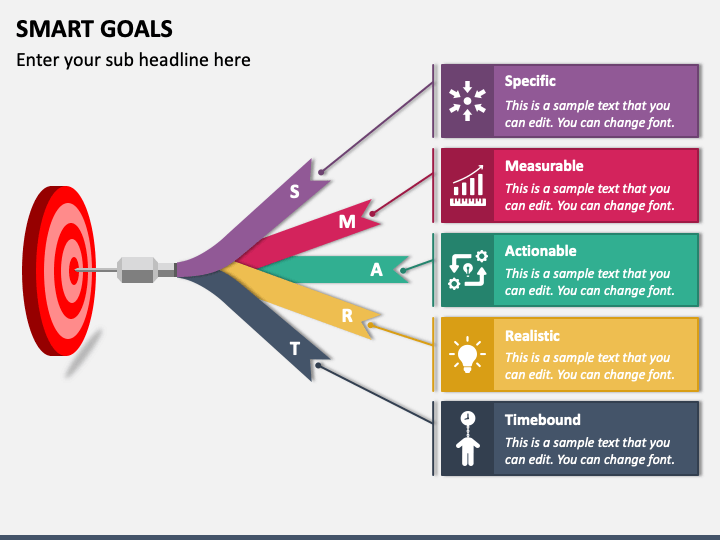Here's a detailed explanation of each component of SMART:
1. Specific:- Goals should be clear and specific, leaving no room for ambiguity. They should answer the "W" questions: What do you want to accomplish? Why is it important? Who is involved? Where will it happen? What are the requirements and constraints?
- Vague goal: "Increase sales."
- Specific goal: "Increase monthly sales by 15% in the next quarter by expanding our product line and launching targeted marketing campaigns."
2. Measurable:- Goals should have quantifiable criteria for tracking progress and determining when they've been achieved. It's important to define how you will measure and evaluate success.
- Unmeasurable goal: "Improve customer satisfaction."
- Measurable goal: "Raise our Net Promoter Score (NPS) from 45 to 60 within the next year through post-purchase surveys and feedback analysis."
3. Achievable:- Goals should be realistic and attainable. While it's great to set ambitious goals, they should still be within reach based on your current resources, skills, and limitations. Be honest about what is feasible.
- Unachievable goal: "Double our annual revenue in one month with our current team and resources."
- Achievable goal: "Increase annual revenue by 20% in the next fiscal year by optimizing our current operations and expanding to new markets."
4. Relevant:- Goals should align with your business's mission, vision, and values. They need to be relevant to your long-term objectives, and pursuing them should make sense in the context of your business's overall strategy.
- Irrelevant goal: "Achieve a 50% reduction in paper usage for a completely digital business."
- Relevant goal: "Implement a paperless office initiative to reduce paper usage by 50% and enhance our environmental sustainability, in line with our company's green initiatives."
5. Time-bound:- Goals should have a clearly defined time frame for completion. This helps create a sense of urgency and accountability, and it prevents goals from lingering indefinitely.
- Non-time-bound goal: "Increase our social media engagement."
- Time-bound goal: "Boost social media engagement by 25% within the next six months by posting daily, engaging with followers promptly, and analyzing weekly analytics."
Applying the SMART framework to your business goals and objectives can help ensure that they are well-defined, realistic, and strategically aligned with your business's overall mission. This, in turn, makes it more likely that you'll achieve your goals and drive your business toward success.





Social Plugin